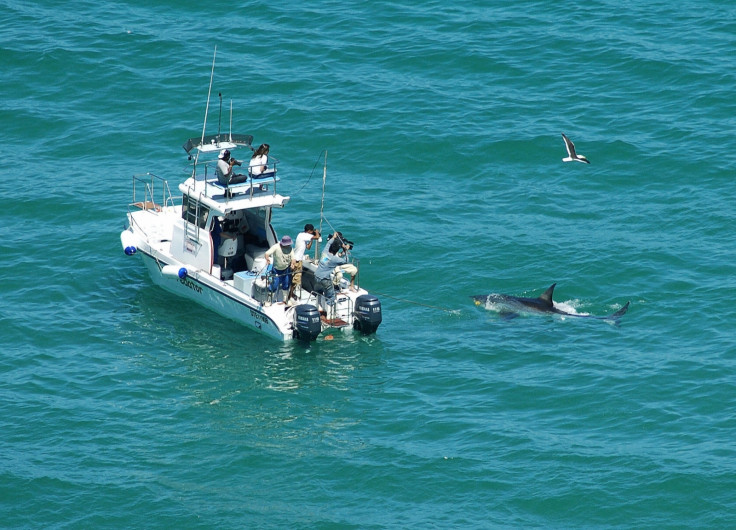Stuff of nightmares: Rare deep-sea shark with bulging eyes found in Australia
The fish was caught at a depth of 650 meters (2,133 feet) underwater.
An Australian fisherman happened to discover a rare shark that looked more scary than beautiful.
Trapman Bermagui stumbled upon the carcass of the shark while fishing in the sea off the Australian coast in Sydney on September 12. The fish was caught from 2,133 feet underwater. Bermagui even shared the images of the scary-looking shark in a Facebook post.
"The face of a deep sea rough skin shark. All the way from 650m," he wrote in the caption.
The fish had a protruding white mouth and teeth and a pointed nose resembling a dog. The post by the fisherman caused quite a stir online with some claiming that it might just be an extra-terrestrial being.
Смотрите публикации, фото и другие материалы на Facebook.
"Stuff of nightmares there," one person wrote in the comments section of the post. "Looks really happy he's just had his braces off so is accentuating the gums and teeth," a second added.
One person suggested that it was not a real shark. They said: "Man made.. either a sculptor or mixing of DNA with the assistance of the crisper...."
However, Bermagui claims that it is a species of endeavour dog shark. "These sharks are common in depths greater than 600 meters. We catch them in the wintertime usually."
Dean Grubbs, associate director of research at the Florida State University Coastal and Marine Laboratory, told Newsweek that it appeared to be a Centroscymnus owstoni, also called the rough-skinned dogfish.
"In my deep-sea research, we have caught quite a few of them in the Gulf of Mexico and in the Bahamas," he said.
"Ours have come from depths of 740 to 1160 meters (~2,400 to 3,800 feet), so a bit deeper than this report. They are in the family Somniosidae, the Sleeper Sharks, the same family of the Greenland Shark, but obviously a much smaller species."
However, it still remains unclear what type of shark it was, as another expert claimed that it looked like a deepwater kitefin shark.
"It looks like Dalatias lata to me; however, we discover new species of deepwater shark all the time and many look very similar to each other," Christopher Lowe, professor at the California State University Long Beach Shark Lab, told Newsweek.

© Copyright IBTimes 2025. All rights reserved.






















